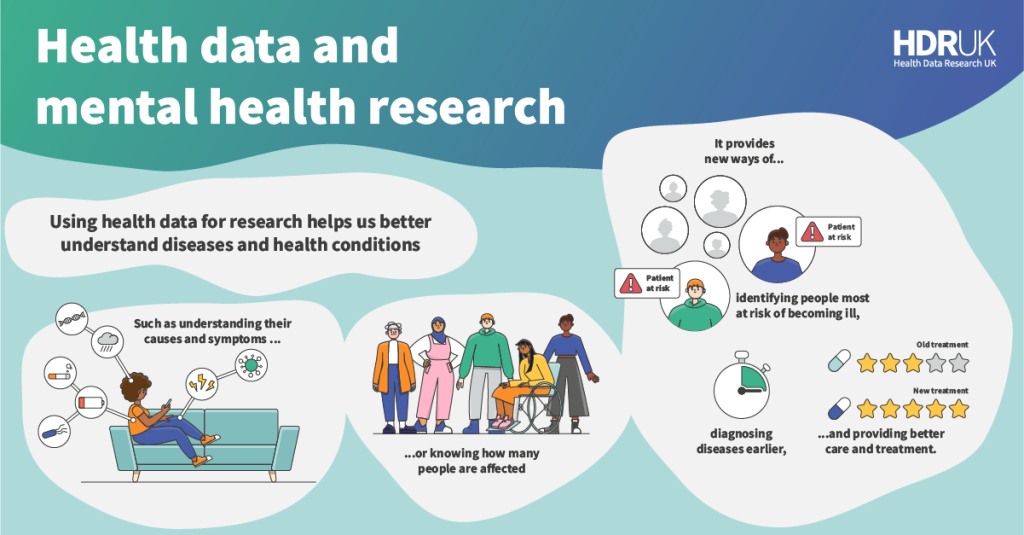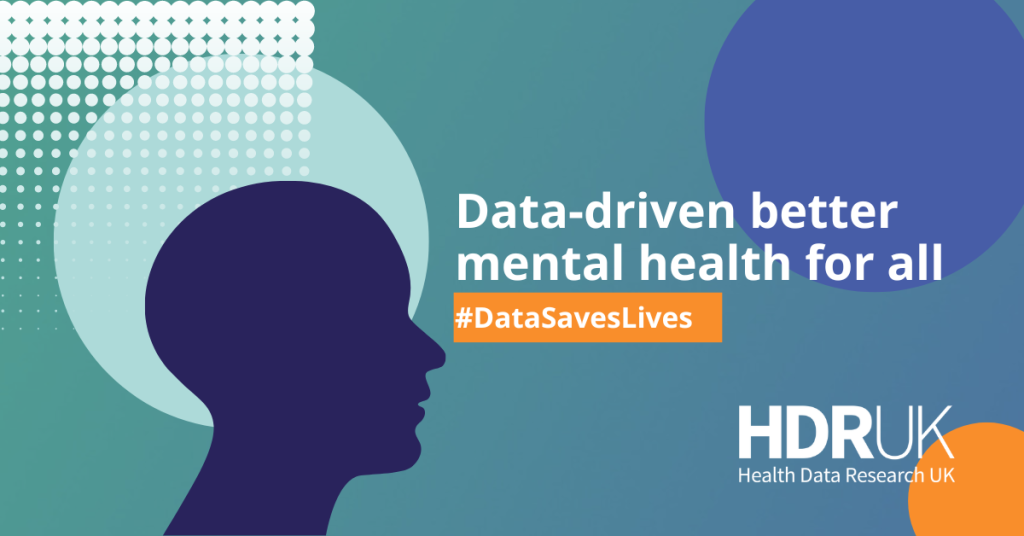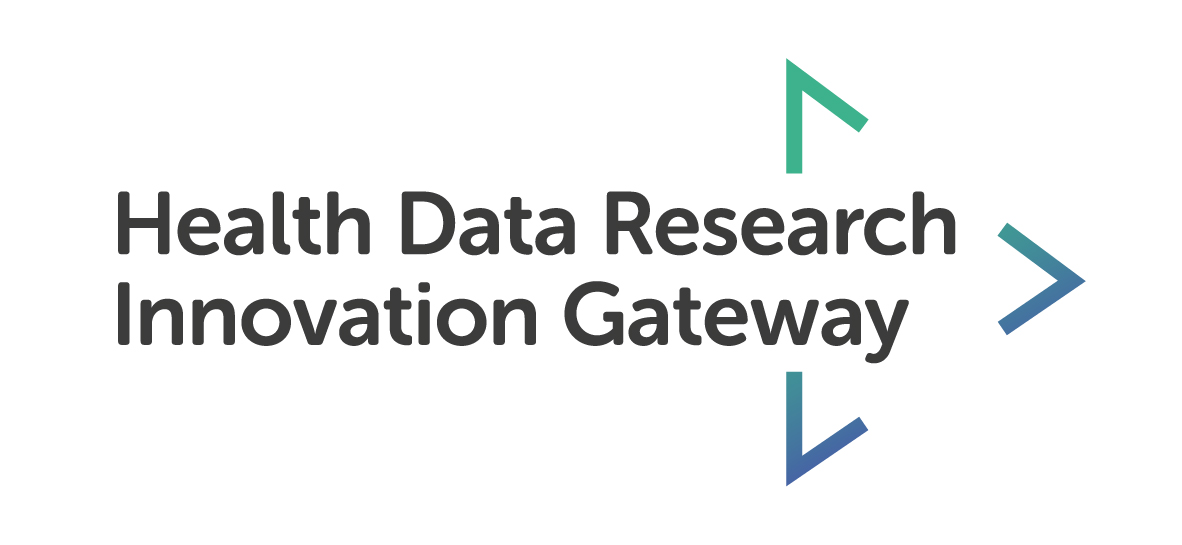Exploring mental health datasets on the Gateway
10 October 2022 | Author: Ruth Milne, Communications Manager, Infrastructure and Services
For World Mental Health Day, we explore some of the mental health-related datasets discoverable on the Health Data Research Innovation Gateway.
Poor mental health can affect anyone at any time in their lives, and research has shown that people with a mental health problem are more likely to experience a preventative physical health problem like heart disease. Yet mental health research in the UK is persistently underfunded compared to other areas of health science.
However, the UK is home to some of the best mental health data in the world, and there is enormous potential to bring together and use these data in research to progress our understanding of mental health, improve patient outcomes, and reduce pressure on health care at an accelerated pace.
To recognise World Mental Health Day, we explore some of the mental health-related datasets published on the Gateway and take a look at how mental health data are currently being used in research projects via the Gateway data use register.
Mental Health Datasets on the Gateway
The Health Data Research Innovation Gateway provides a common entry point to search, discover and request access to health datasets, and other resources, vital for research and innovation. Here, we highlight some mental health-related datasets currently listed on the Gateway.
Avon Longitudinal Study of Parents and Children
Also known as Children of the 90s, this cohort study recruited 15,000 pregnant women in the early 1990s and has followed the mental and physical health of the women, their partners and children for three decades. It has multiple datasets spanning 30 years of data collection using self-completed questionnaires, hands-on research clinics, linkage to routine information systems and other sources.
The ALSPAC study is based at the University of Bristol and led by Professor Nic Timpson. The study’s unique breadth and depth of its data has already informed more than 2,500 research papers on some of the most pressing health questions of our time, including mental health.
DATAMIND – our Hub for Mental Health Research

DATAMIND is transforming mental health research in the UK by providing a central, integrated data infrastructure with findable, accessible, interoperable, and reusable (FAIR) mental health data sets.
The Hub is continuously cataloguing relevant UK data rich in mental health information, including from gene studies, routine care, volunteer cohorts, and trials, as well as novel data from schools and charities. Researchers can discover these datasets, and find out how to request access to them, via the Gateway.
DATAMIND is led by Professor Ann John (Swansea University) and Professor Rob Stewart (King’s College London), and recently celebrated its first anniversary – congratulations!
The Mental Health Services Data Set (NHS Digital)
The Mental Health Services Data Set (MHSDS) collects data from the health records of individual children, young people and adults who are in contact with mental health services. It brings together information captured on clinical systems as part of patient care and covers not only services provided in hospitals but also outpatient clinics and in the community, where the majority of people in contact with these services are treated.
The UK Longitudinal Linkage Collaboration (UK LLC)
 Funded as part of the COVID-19 Longitudinal Health and Wellbeing National Core Study, the UK Longitudinal Linkage Collaboration (UK LLC) project links data from well-established longitudinal studies to routine records which can be accessed securely to help researchers and analysts work to improve health and wellbeing throughout and beyond the coronavirus pandemic.
Funded as part of the COVID-19 Longitudinal Health and Wellbeing National Core Study, the UK Longitudinal Linkage Collaboration (UK LLC) project links data from well-established longitudinal studies to routine records which can be accessed securely to help researchers and analysts work to improve health and wellbeing throughout and beyond the coronavirus pandemic.
Data is provided by over 200,000 study participants and held in a Trusted Research Environment where linked data from the studies can be used in COVID-19 research across the UK, including projects to understand the immediate and long-term impact of the pandemic on our mental health.
The UK LLC is run by the Universities of Bristol and Edinburgh, in collaboration with UCL, Secure eResearch Platform UK (SeRP UK), the University of Leicester and Swansea University.
South London and Maudsley NHS Foundation Trust (SLaM)
The South London and Maudsley NHS Foundation Trust (SLaM) provides the widest range of NHS mental health services in the UK, serving a local population of 1.3 million people in south London. Each year, the Trust provides inpatient care for over 5,000 people and treat more than 40,000 patients in the community across Lambeth, Southwark, Lewisham and Croydon.
Along with treatment services and training facilities, science and research is at the core of everything SLaM does to help improve the lives of the people they serve – SLaM is the only mental health trust in the UK to have its own biomedical research centre. The centre provides approved researchers with secure access to anonymised information extracted from SLaM’s electronic clinical records system via the Clinical Record Interactive Search (CRIS) platform, currently representing over 400,000 mental health service users.
Visit the Mental Health Collection on the Gateway to explore further datasets, tools and resources available to support mental health research.
How mental health data are being used in research
The Gateway data use register is a public record to show how health datasets are being used in research, who is using them and for what purpose. Here, we highlight some mental health-related studies currently listed on the register.

Impact of COVID-19 on mental health in Northern Ireland
This project aims to quantify the impact of the pandemic and subsequent lockdowns on mental health using administrative data. A range of demographic and socio-economic factors are being explored to determine if the effects of COVID-19 are felt more greatly amongst certain sub-groups of the population, for example, those with pre-existing mental ill-health.
Young people’s barriers to mental health services
This study considers the childhood factors contributing to the mental health experiences of young people, with a focus on those not accessing formal mental health services. The research aims to help identify young people who are most at-risk from mental conditions, understand the barriers for accessing mental health care and services, and inform public awareness campaigns aimed at young people.
Developmental pathways to mental health problems
This project is examining the trajectory of mental health over time by investigating the influence of genetic, environmental, neural, and neurocognitive factors. The research aims to provide new insights into the development of mental health problems, including risk, protective, resilience and recovery factors.
Ambulance callouts for psychiatric emergencies during the COVID-19 pandemic
At least 10% of ambulance callouts in Scotland are mental health related. This study looks at whether the numbers and patterns of these callouts, and the characteristics of people experiencing mental health crises, were different from expected during the COVID-19 pandemic.
Development of mental illness and cardiometabolic comorbidities
This project explores whether the associations between genetics, mental illness and cardiometabolic disease – that have been widely reported in adults – are already apparent in adolescents. The research could pave the way for improved treatment of mental illness as well earlier prevention of cardiometabolic disease, including obesity diabetes and heart disease.
Discover more projects using mental health data for research on the Gateway
Data-driven better mental health for all
The Health Data Research UK community is leading the way to harness the UK’s data by creating an ecosystem for secure, inclusive and anonymised data research, and supporting cutting-edge mental health data science to improve the lives of people with mental health.

For World Mental Health Day on 10th October, HDR UK launched a campaign focussed on the important role that data has in reducing mental health care inequalities.
Visit the Data Saves Lives: Mental Health campaign hub to find out more.


